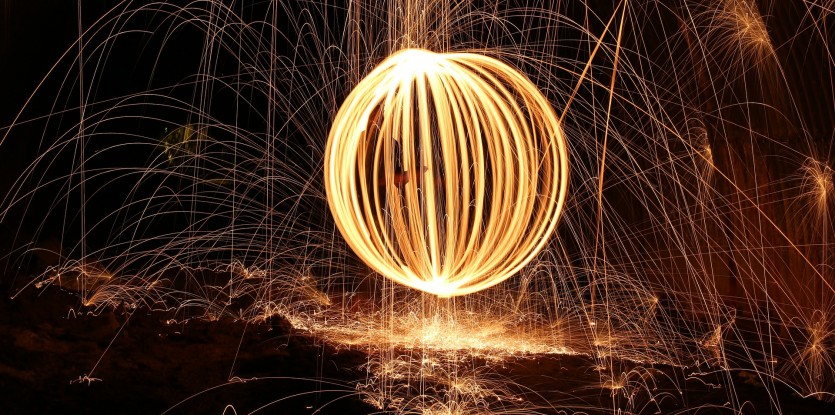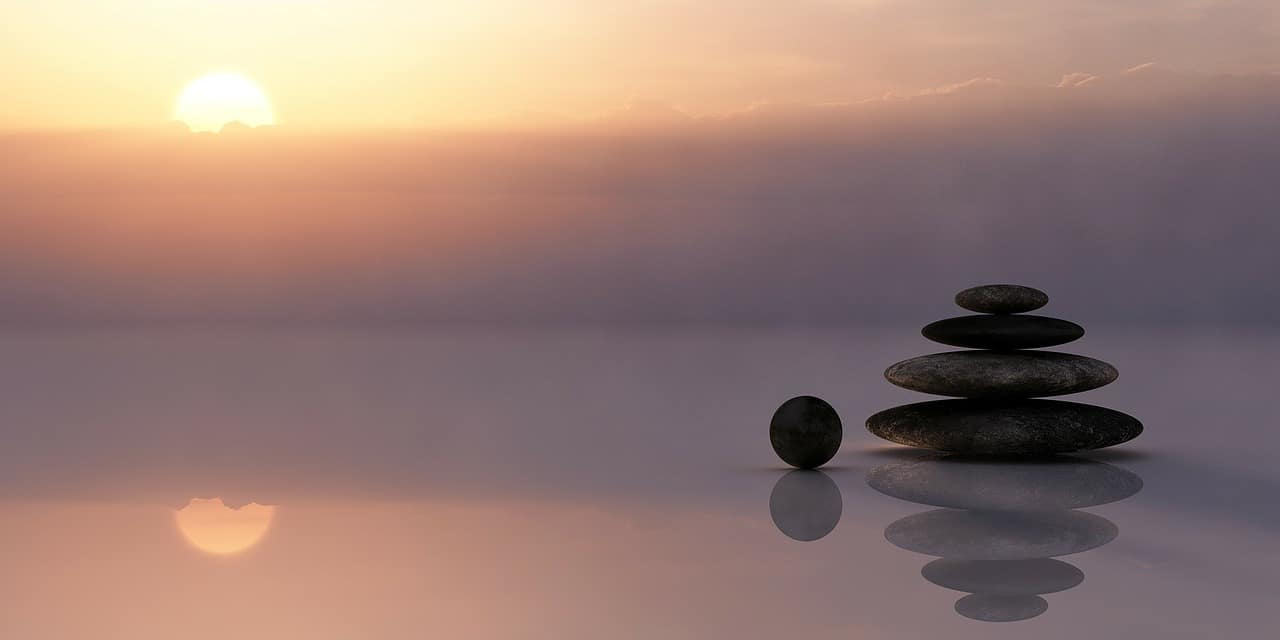And G-d spoke to Moses, saying: “Speak to Aaron and say to him: ‘When you raise the lamps…’ “
Numbers 8:1-2
Be of the disciples of Aaron: A lover of peace, a pursuer of peace, one who loves his fellow human beings and brings them close to Torah
Ethics of the Fathers 1:11
The appearance of Moses’ older brother, Aaron, in both these citations is not coincidental: the fact that Aaron is cited as the prototype for man’s responsibility for the spiritual elevation of his fellows is a reflection and outgrowth of his role as the kindler of the menorah in the Holy Temple.
Many of the Torah’s commandments are specific to certain locations and to certain periods in our history; the lighting of the menorah, for example, can be performed only in the Holy Temple. But every mitzvah also has a “spiritual” dimension – a timeless and universal application within our internal self. One of the spiritual applications of the mitzvah to kindle the menorah’s lamps is the imperative to kindle “The lamp of G-d, the soul of man”[9]– to ignite a fellow human being’s potential to radiate light and warmth to his or her surroundings.
A Legal Paradox
Each of the many laws governing the menorah’s physical lighting in the Holy Temple has its counterpart in the spiritual significance of the menorah. In fact, there are laws that can be truly understood only in light of their inner-personal import. A case in point are the following three rules:
a) Although the commandment to light the menorah was directed to Aaron, the most exalted and holiest of the kohanim, every Jew, including one who is not a kohen, is qualified to perform this mitzvah.[10]
b) On the other hand, the task of preparing the lamps (cleaning them, filling them with oil, and inserting their wicks) is entrusted solely to those whom G-d elected to serve Him in the Temple: only a kohen is qualified to ready the lamps for lighting.[11]
c) From its outermost courtyard to its innermost chamber, the Holy Temple consisted of eight domains, each imbued with a greater degree of sanctity. The designated place of the menorah was the heichal, which was second only in this hierarchy of holiness to the Temple’s innermost chamber, the “Holy of Holies.” Only kohanim were allowed to enter the heichal.[12]
Laws (a) and (c) result in a legal paradox: Since a non-kohen could not enter the heichal, the only way for an ordinary Israelite to light the menorah was if he did so with the aid of a long pole, or if the menorah was carried out to him by a kohen and then replaced in the heichal. This raises an obvious question: if the Torah intended that every Jew should be able to perform the mitzvah of lighting the menorah, why didn’t it place the menorah in a part of the Temple to which every Jew has access? And if, on the other hand, the holiness of the menorah is such that it requires the more sacred environment of the heichal, why did the Torah permit someone who cannot obtain this standard of holiness to light it?
Law (b) is likewise puzzling: should not the standard for lighting the menorah be equal to, if not greater than, that of its preparation? If any Jew can light the menorah, why is only a kohen qualified to prepare it for lighting?
Standards
“The kohanim of the tribe of Levi,” G-d instructed Moses, “and the entire tribe of Levi,[13] shall have no share and lot [in the Land] with the people of Israel…. G-d is their lot.”[14] Excluded from all earthly cares, responsibilities and privileges, the kohen’s life is utterly devoted to “serve G-d, and teach His law to the community.”[15]
But there is also a broader definition to the status of kohen.
“Not only the tribe of Levi,” writes Maimonides, “but any man of all the inhabitants of earth whose spirit has moved him … to stand before G-d, to serve Him, to worship Him, to know G-d and walk justly … and he cast from his neck the yoke of the many calculations that men seek-such an individual becomes sanctified, a holy of holies, and G-d shall be his portion and his lot.”[16]
Therein lies the deeper significance of the law that the menorah can be lit also by an “ordinary” Israelite. One might think that the role of igniting souls had best be left to the “spiritual leader,” to one whose entire life is devoted to G-dly pursuits. What can the ordinary person, himself burdened by the mundanities of life, offer the spiritually wanting soul?
Says the Torah: Every soul is a “lamp of G-d,” regardless of the degree of spirituality in his life. Every individual has the capacity to generate light and to ignite a fellow lamp. And if G-d has given you license and ability for the task, it is your sacred duty to do so. Never mind that the bulk of your life is taken up with the demands of a material existence; you too can, and must, serve as a teacher and lamplighter to your fellows.
However, one might take this to the other extreme and argue: If G-d instructs that I, too, am qualified to light the menorah, then I am free to do so on my terms-to interpret the Torah as I understand it and to spread its light in the manner that I see fit. Says the Torah: only the kohanim, those chosen by G-d as the nation’s spiritual leaders, are qualified to prepare a menorah for lighting. Only they can decide the content of the message and the means of its dissemination. In all matters of Torah law and teaching, “You shall come to the kohanim, the Levites, to the judge that shall be in those times … and you shall do as they instruct you.”[17]
The place of the menorah is in the heichal; and while your natural place might be a less sacred environment, your license to light the menorah it is not a license to compromise its holiness. In the above-cited words of Hillel, a disciple of Aaron is one who “brings his fellow human beings close to the Torah”-not, G-d forbid, the other way around; one’s fellow must be brought close to the Torah, but the Torah must never be brought down to the level of those one seeks to uplift.
On the other hand, the fact that the menorah’s standards are loftier than your own does not absolve you from your duty as a lamplighter. Your light must be employed to illuminate others, even if it means reaching into the heichal with a “long pole” – extending your reach to areas that your ordinary self cannot aspire to. Even if it means that the menorah must be “carried out” to you by a kohen to enable you to realize your potential as a luminary and an illuminator.
In other words, you must grapple with the distance between the lowliness of your own spiritual state and the loftiness of the ideals you are duty bound to teach. You must do so not by compromising their loftiness, nor by escaping your duty, but by finding ways to bridge that distance and become a bearer of light even if it is a light that is loftier than your own.
Based on the Rebbe’s talks on Shavuot 5717 (1957) and on other occasions[18]
Adapted from the teachings of the Rebbe by Yanki Tauber
[9] Proverbs 20:27.
[10] Mishneh Torah, Laws of Entering the Holy Temple, 9:7.
[11] Ibid.
[12] Talmud, Keilim 1:8-9.
[13] The entire tribe of Levi was elected to serve G-d in the Holy Temple. Among the Levites themselves, the kohanim were entrusted with the most sacred aspects of the Temple service, while the other Levites serve as the kohanim’s assistants.
[14] Deuteronomy 18:1-2.
[15] Mishneh Torah, Laws of Shemittah and Yovel 13:12. Cf. Deuteronomy 33:10.
[16] Mishneh Torah, ibid., 13:13.
[17] Deuteronomy 17:9-10.
[18] Likkutei Sichot, vol. II, pp. 314-318; Sefer HaSichot 5750, pp. 508-509, et al.







